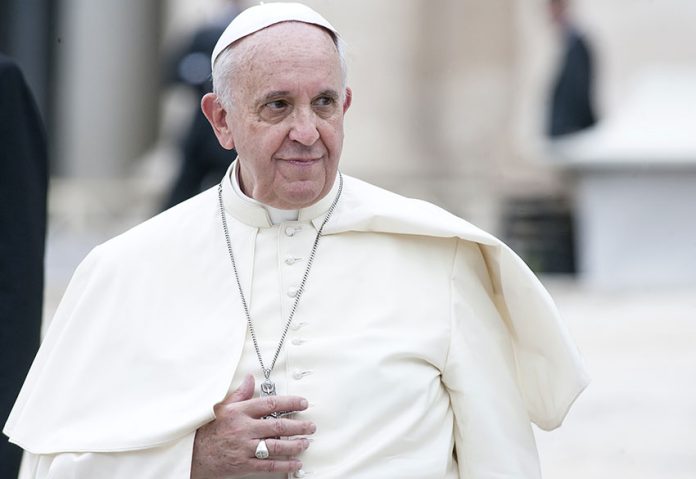Pope Francis has sent a message of solidarity and compassion to the residents of the violence-stricken municipality of Aguililla, Michoacán.
“You are not alone,” the pope told residents in a letter to Apatzingán Bishop Cristóbal Ascencio García, whose diocese includes the Tierra Caliente municipality at the center of a turf war between the Jalisco New Generation Cartel and the Cárteles Unidos.
The letter, read aloud by Ascencio at a Mass on Sunday, urged Aguililla residents to place their faith in God and asserted that “the Lord is strength and mercy that never abandons his children.”
“… The church is attentive and close to all those who suffer,” Francis said in the letter dated June 11.
The pope told the bishop he was aware of “great suffering” caused by violent confrontations between rival drug-trafficking groups in territory under his pastoral care.
“… The climate of fear and insecurity that afflicts the population is contrary to the will of God; He wants all his sons and daughters to live their life in a safe climate of serenity and harmony,” he wrote.
The pope said he wanted to make his presence felt “in these difficult times,” adding that he was praying to give the people of Aguililla strength to overcome their suffering with strength and patience.
“I can understand the feeling of despondency and the sensation of helplessness … but remember you are not alone…” he wrote.
The pope’s prayers and wishes were insufficient to prevent a breakdown of talks last week between federal authorities and Aguililla residents.
Discussions were suspended because a government offer to the residents – which included the provision of a range of social programs and the construction of infrastructure – failed to respond to their main demands: clear passage on local highways that have been frequently blocked by the feuding criminal groups and enforce security.
Local priest Gilberto Vergara told the newspaper Reforma that residents remained dissatisfied with the army’s efforts.
“What hindered [the talks] … is that residents have been protesting at the military barracks in Aguililla for 15 days; the demand of the people is for the soldiers to leave the barracks and patrol [the streets],” he said.
“They went [to the barracks] once to demand that they go out and clear the roads but they didn’t do it. There’s been discontent since then,” Vergara said.
While the soldiers remain in their barracks instead of patrolling the municipality, dialogue with the government “looks difficult,” the priest said.
Angry at the army for not doing the work they believe it should be doing, some residents recently prevented a military helicopter from landing at a heliport in Aguililla that has been used to fly in supplies to soldiers.
Residents, who have forced shortages of essential goods due to the highway blockades, subsequently dug up the heliport with backhoes.
The pope is not the first high-ranking Catholic Church figure to take an interest in Aguililla. The Vatican’s ambassador to Mexico, Archbishop Franco Coppola, visited the municipality in April and blamed the absence of the state for the situation of insecurity.
